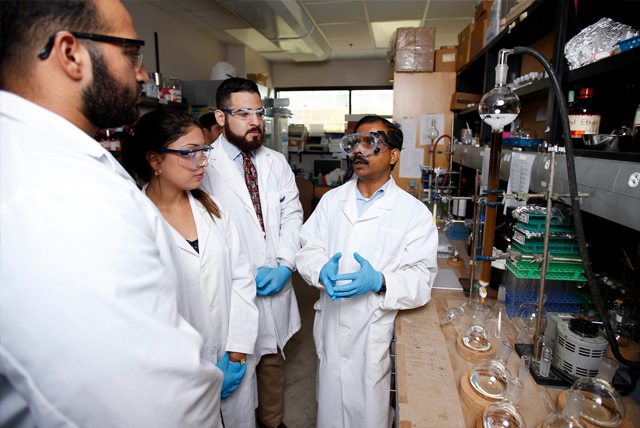Document Type
Article
Publication Date
8-2018
Abstract
Glutathione, a peptide found in microbes, plants and animals including human plays a key role in maintaining healthy cells. The peptide exists in both reduced and oxidized forms. Synthesis of GSH occurs in the cytosol of cells, and the extent of glutathione synthesis relies on various factors, such as amino acid availability, protein activity etc. Once synthesized, glutathione exists in both forms: oxidized (GSSG) and reduced (GSH). Oxidized glutathione characterized by its disulfide linkage. On the other hand, presence of a thiol group characterizes the reduced glutathione. This thiol makes the tripeptide an essential component of health; it makes glutathione a free radical scavenger, or an antioxidant. Disturbance in glutathione synthesis or imbalance in GSH to GSSG ratio results in physiological conditions due to build up oxidants in cells. Imbalance might take place because of physiological conditions, or may result from hereditary conditions, or a disease developed from lifestyle. Dietary glutathione supplements are now being marketed. A concise overview of various aspects of glutathione in human body is presented in this mini-review.
Recommended Citation
Raya, Cristina, and Debasish Bandyopadhyay. 2018. “Glutathione: A Small Molecule with Big Sense.” International Journal of Pharma Sciences and Scientific Research 4 (5): 39–44. https://scholarworks.utrgv.edu/chem_fac/126.
Creative Commons License

This work is licensed under a Creative Commons Attribution 4.0 International License.
Publication Title
International Journal of Pharma Sciences and Scientific Research
Included in
Alternative and Complementary Medicine Commons, Chemicals and Drugs Commons, Chemistry Commons, Pharmacy and Pharmaceutical Sciences Commons



Comments
©2018 Debasish Bandyopadhyay et al.